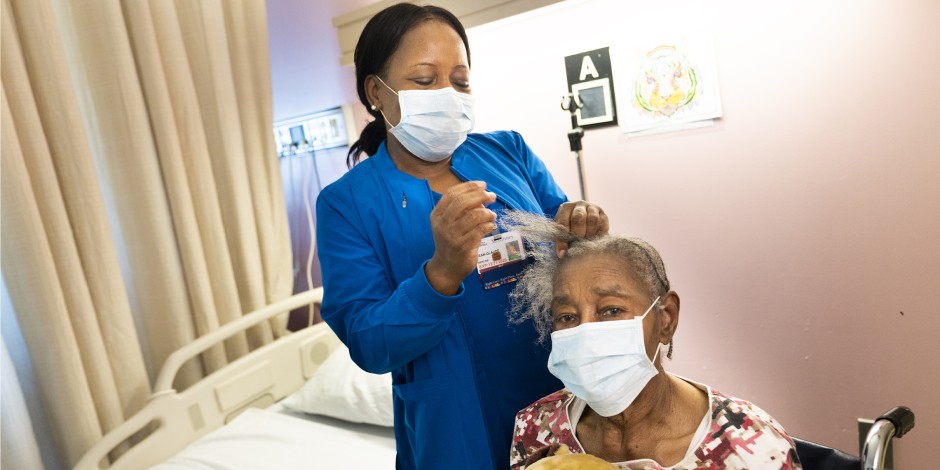Health System Receives Grant to Evaluate High-Risk Medication in Older Adults
Research will help modify physician prescribing behavior and
increase patient safety outcomes in those over the age of 65
Grant was provided by the Doctors Company Foundation
Jun 04, 2021

NYC Health + Hospitals today announced it has received a $234,000 grant to evaluate alternatives to high-risk medication in older adults to prevent falls and delirium in patients. Utilizing a non-intrusive ‘nudge’ intervention approach, certain medications, most commonly sedatives, will be adjusted to lower doses, and lower frequency, to ultimately lower the risk for patients. This will be done to help modify and understand physician prescribing behavior and improve patient safety outcomes in patients over the age of 65, a group that is particularly vulnerable to confusion and falls after taking high-risk medications. Grant funding will be utilized to study and amend the system’s medical record system to support the randomized selection of patients and automatic medication fills. Outcomes will be rigorously studied, and this intervention will be carried out in each of the public health system’s 11 hospitals. The supporting grant is provided by The Doctors Company Foundation.
“Our public health system continues to challenge the status quo in medicine, finding new ways to encourage safety in our patients and only provide high-quality care to everyone,” said NYC Health + Hospitals Senior Vice President and Chief Quality Officer Eric Wei, MD, MBA. “This grant from the Doctors Company Foundation will allow us to tackle yet another safety concern for our patients, that could lead to more efficiency and faster, healthier discharges.”
“We aim to deliver the right medications at the safest doses for our older adults, finding optimal ways to ease symptoms and mitigate harm. This grant will help us do the right thing for our patients,” said NYC Health + Hospitals Chief Value Officer Hyung (Harry) Cho, MD.
The ‘nudge’ intervention will be embedded across NYC Health + Hospitals’ electronic medical record system to help select patients at random. Prescriptions will be automatically defaulted to a lower dose or administration frequency for this group of patients. Examples of high-risk medication can include sedatives, such as zolpidem (Ambien) and diphenhydramine (Benadryl). The research will be evaluated for a number of outcomes, including reduction in hospital falls, injuries, unnecessary readmissions, and length of stay.
Patients over 65 years of age are most likely to experience falls and delirium if given medication to sleep, and higher-risk medications can pose additional dangers when combined with other prescription medication. Because of the sensitivities to drugs, this patient group can benefit from taking lower doses of less-harmful medication.